Transitioning to memory care is one of the most emotional and challenging steps a family can face. If you’re reading this, you may be feeling overwhelmed, uncertain, or even guilty as you consider memory care for a loved one. You’re likely wondering if you’re jumping the gun or waiting too long.
At Bridges® by EPOCH, we understand that this decision goes beyond what is best for your loved one. Dementia impacts the entire family. That’s why we view home caregivers, family members, and close friends as all parts of the circle of care. Dementia touches every life around it, and we make it our mission to support everybody affected by memory loss.
To help families better understand this journey, we spoke with Kevin Defayette, Executive Director at Bridges® at Hingham.

Kevin Defayette
Executive Director at Bridges Hingham
With years of experience guiding families through these transitions to memory care, Kevin offered thoughtful insights into the concerns families face, the signs it may be time to consider memory care, and the compassionate support that Bridges® provides along the way.
“What Are We Gaining from Memory Care?”
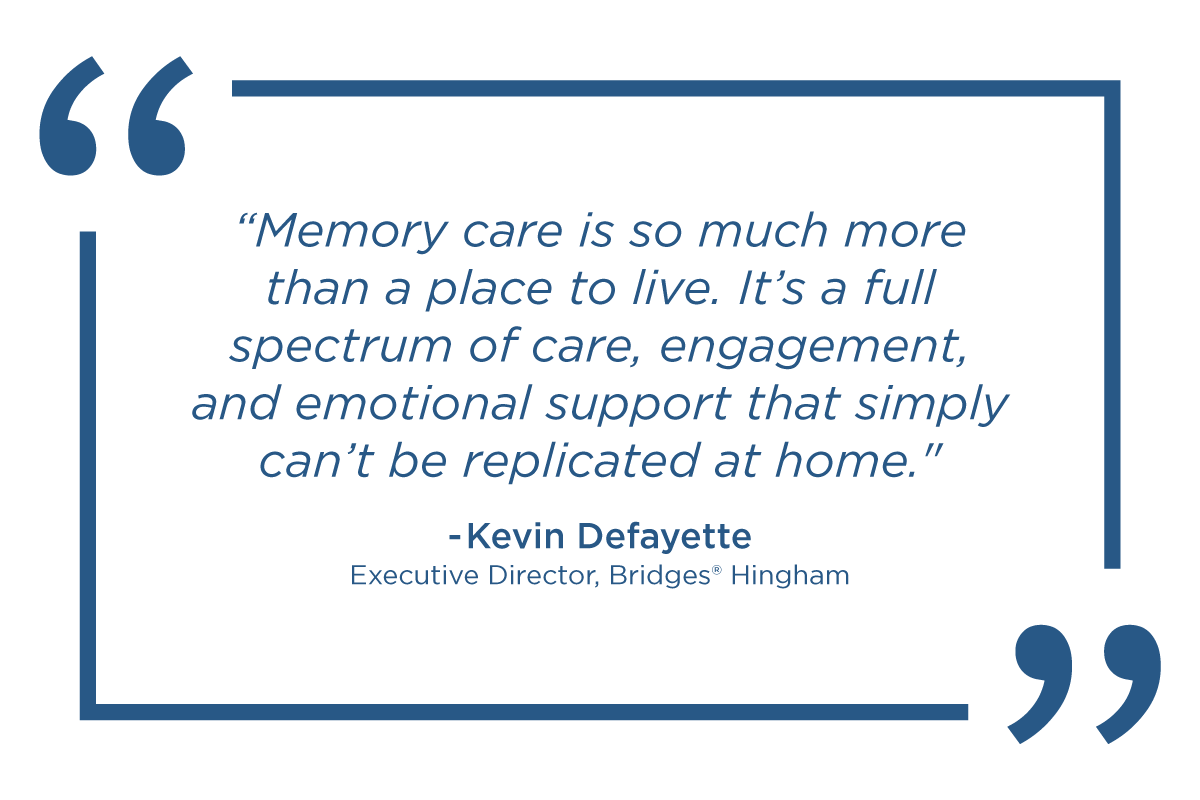
One of the most common questions that families ask, according to Kevin, is about cost. This is top of mind, but it’s about more than just the number. Families understandably want to know what they are getting in return for the monthly fee.
“Memory care is so much more than a place to live,” Kevin explained. “It’s a full spectrum of care, engagement, and emotional support that simply can’t be replicated at home, no matter how dedicated a family support network may be.”
There’s also often confusion about what memory care actually is. Many assume it’s the same as nursing care and expect to see a clinical, hospital-like environment. But that couldn’t be further from the reality of a memory care community like Bridges®.
A visit and a walkthrough at Bridges® Hingham often changes everything. Families get to see firsthand what personalized, compassionate memory care looks like: purposeful engagement, a calm, secure, and welcoming environment, and a team that genuinely understands how to support individuals living with dementia.
Kevin always seeks to explain that this specialized dementia care is the reason to choose a memory care community if a loved one needs it.
How Do You Know When It’s Time for Memory Care?
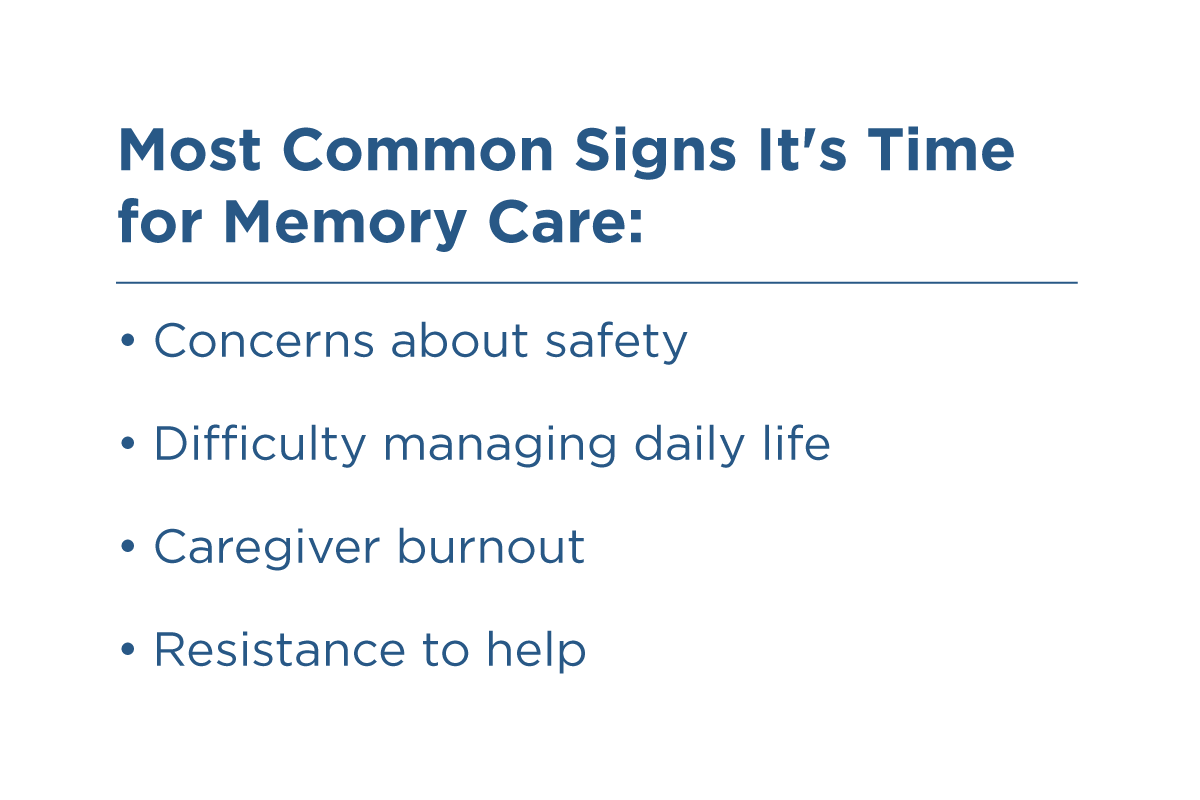
Families will grapple with this question: Is now the right time?
Kevin has seen a consistent set of signs that suggest you should consider memory care:
- Concerns about safety, especially if wandering has begun or an individual can no longer safely use things like the stove.
- Difficulty managing daily life at home.
- Caregiver burnout, stress, or declining health.
- Resistance to help at home, such as refusing home health care.
“One of the clearest signs for families is when they realize that, even with their best efforts, home just isn’t the safest or most supportive place for their loved one anymore,” Kevin said.
“What’s important to understand is that this isn’t a failure. Dementia is a progressive disease that places increasing pressure and challenges on a caregiver. Sometimes, a caregiver simply can’t offer the necessary levels of care to keep a person safe on their own. If this happens, it’s an important realization to understand this dynamic before something bad happens.”
How Do You Deal with Guilt and Grief?
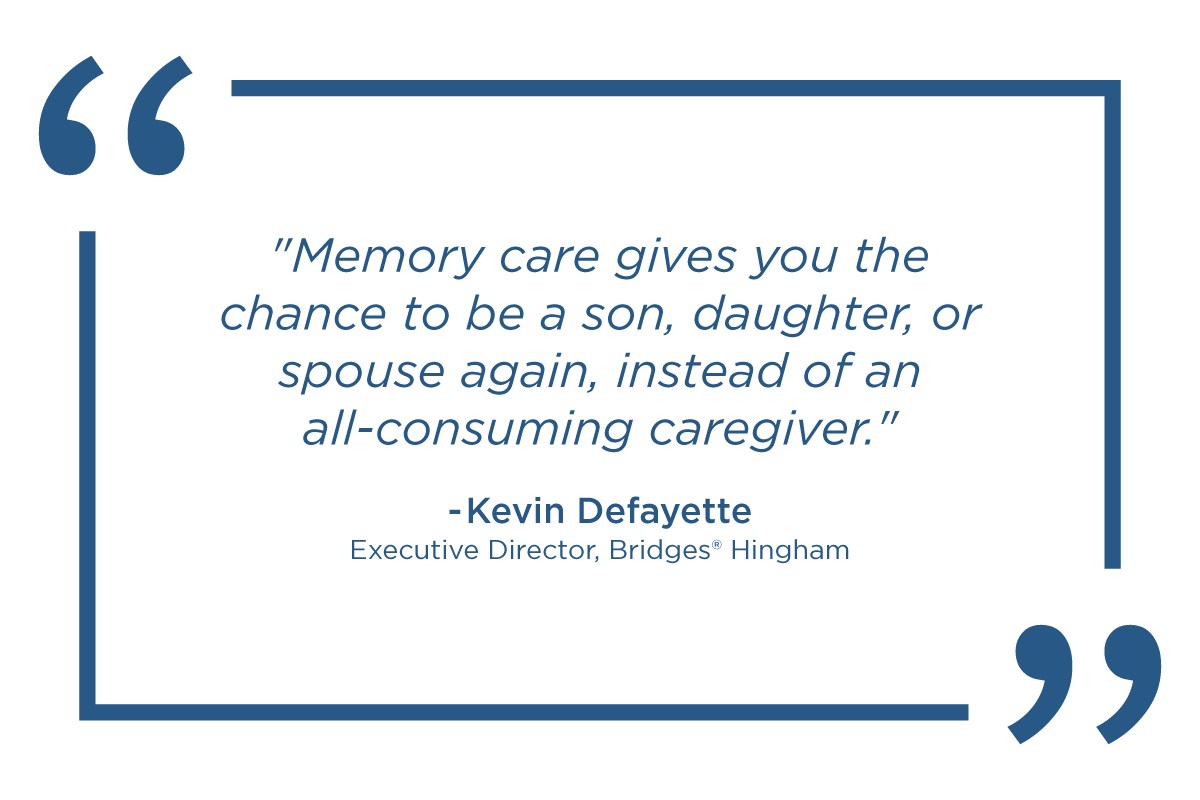
Almost every family experiences guilt. Many worry that it’s “too soon”, framing the decision to move to memory care as a negative step, as a removal of independence. Others may feel they’ve already waited too long and missed a time when their loved one may have benefited from extra care.
This emotional conflict is something Kevin and his team talk about with families:
“We always tell families on the fence about memory care not to wait until there’s a crisis. A rushed move after an avoidable fall or emergency is far more traumatic for everyone than a planned transition.”
“If you can care for your loved one at home, and they aren’t in danger, then that’s great. The main thing we want to avoid is a situation where caregivers and those with memory loss leave it until there’s an unpleasant circumstance to make the move.”
And Kevin says that almost every family expresses this feeling of guilt or grief in the face of this condition. Support groups, educational sessions, and peer conversations at Bridges® play a huge role in helping families come to terms with these emotions.
Kevin reminds families that guilt is a natural reaction, but that it isn’t helpful or fair to be so hard on yourself. What’s more important is recognizing that choosing memory care can be an act of compassionate kindness for everybody affected by dementia:
“Memory care gives you the chance to be a son, daughter, or spouse again, instead of an all-consuming caregiver. That shift can be remarkably healing as you allow expert professionals to remove some of that care burden.”
How Is Memory Care Different from Assisted Living?
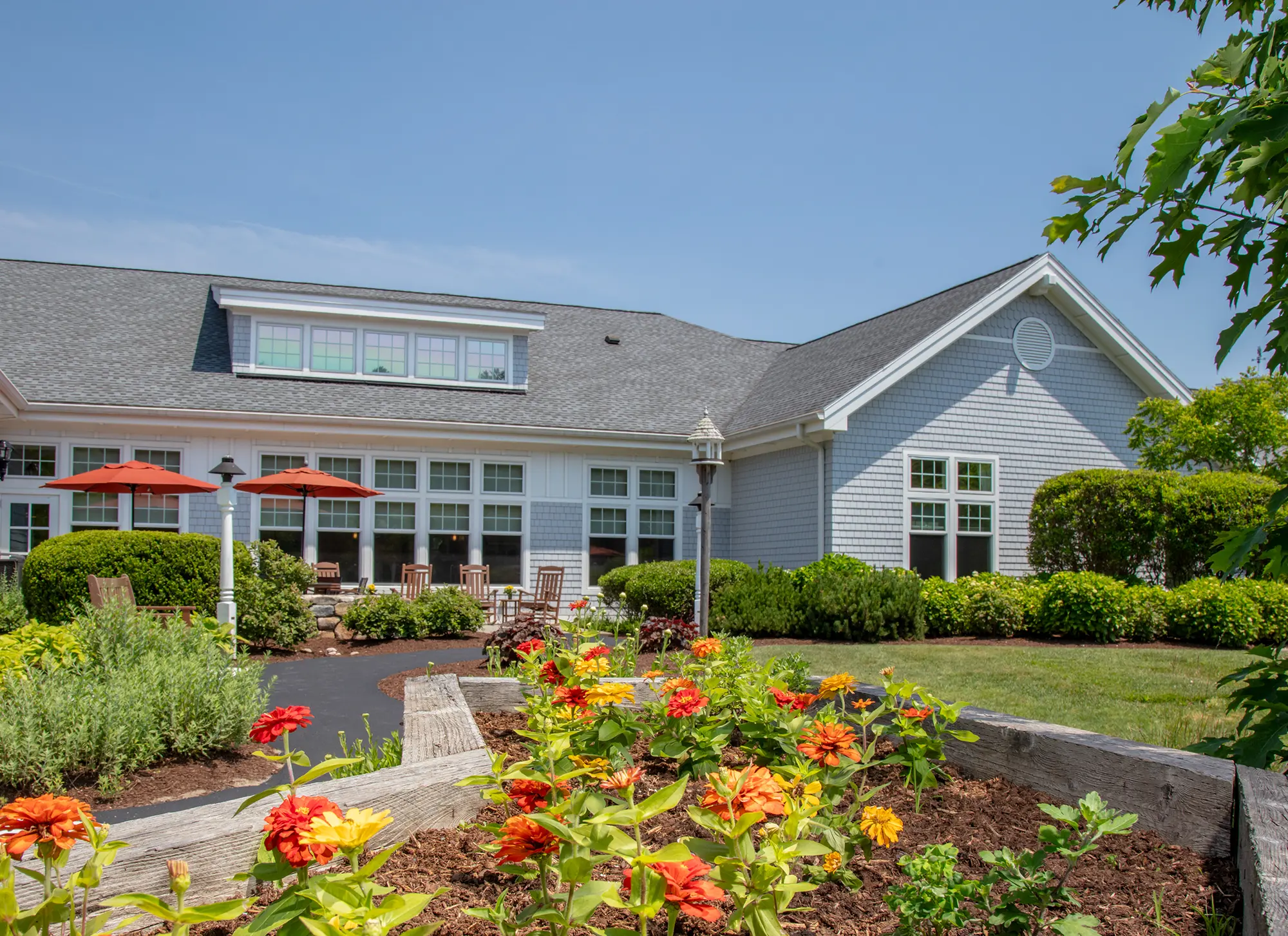
While assisted living may meet the needs of older adults who need help with daily tasks, it’s ultimately not an environment designed for individuals with progressive cognitive impairment.
Memory care communities, like Bridges, provide:
- A higher team-to-resident ratio
- Specialized dementia care training for every team member
- A secure environment that feels like a home, rather than a facility
- Life enrichment programming tailored to different cognitive abilities and personalized for each resident
- Thoughtful routines to reduce agitation and encourage engagement
- A Purposefully designed community for individuals with dementia
“At Bridges®, every aspect of our community is designed around dementia and providing a supportive environment,” Kevin explained. “It’s not just a place to live and receive care but a place to engage, socialize, make connections, and get creative. It’s also a place for families to come and get involved, too.”
What Do Families See After the Move?
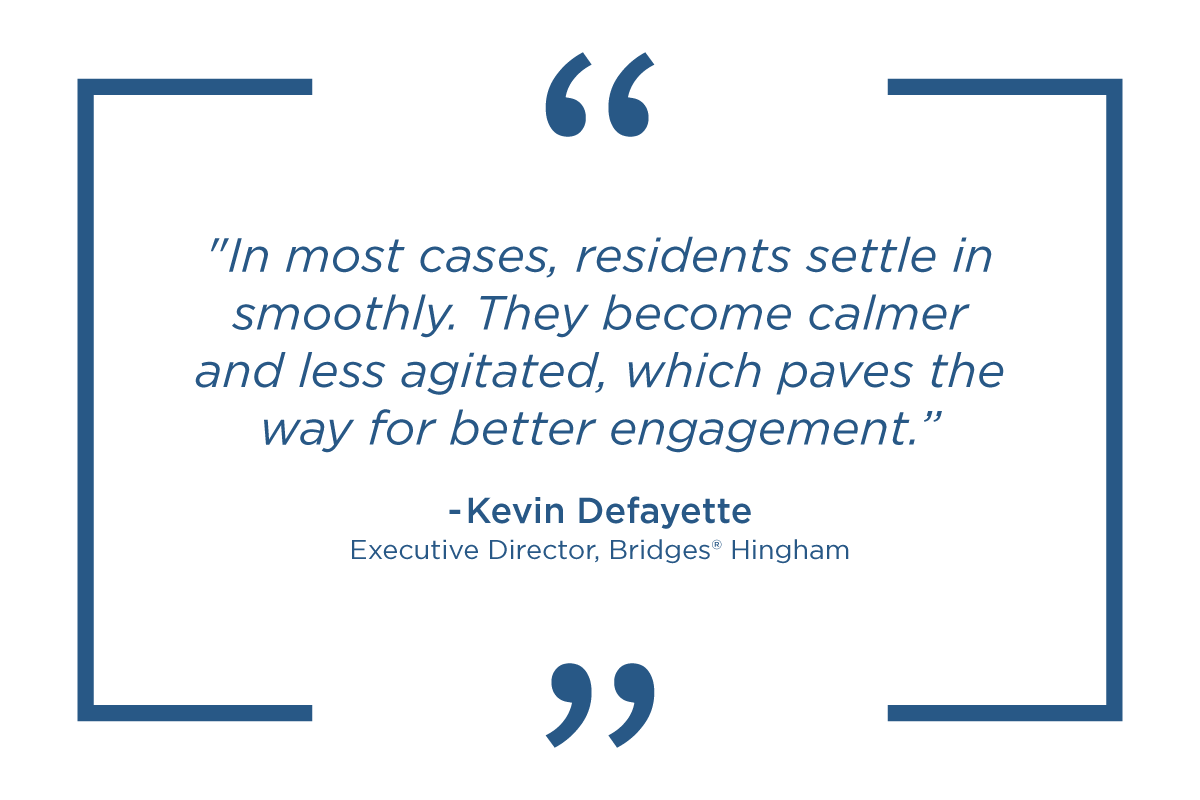
There is an understandable fear associated with a transition to memory care. A feeling that the move will be traumatic or that a loved one will be unhappy. There is often an unpleasant notion of relinquishing control over a person’s well-being.
However, Kevin notes that in his experience, the outcome is usually better than expected.
“Families brace themselves for a difficult move and expect the worst. But in most cases, residents settle in smoothly. They become calmer and less agitated, which paves the way for better engagement.”
It’s not uncommon for families to be surprised by how much their loved one seems to thrive once they’re surrounded by 24/7 support and avenues for exploration. And for caregivers, of course, that care burden is lifted somewhat. They now have a team beside them to take care of their loved one: the Bridges® team.
“What we do at Bridges® can’t be recreated at home or in a clinical setting. That’s not a criticism of families. It’s a reflection of how specialized and consistent our care is.”
Another element to consider here is that, once you make a move, if all involved are happy with the arrangement, the resident settles in and can age in place.
Since Bridges® has the expertise to support all stages of dementia, residents won’t have to move again or go through a potentially traumatic transition elsewhere.
If a resident’s dementia progresses to the point that they require levels of care and physical support beyond the scope of Essential Care, the Enriched Care program at Bridges® Hingham provides additional services to allow them to age in place.
With these added services, even those residents in the later stages of Alzheimer’s disease can live comfortably and safely.
How Bridges® Supports Families Every Step of the Way
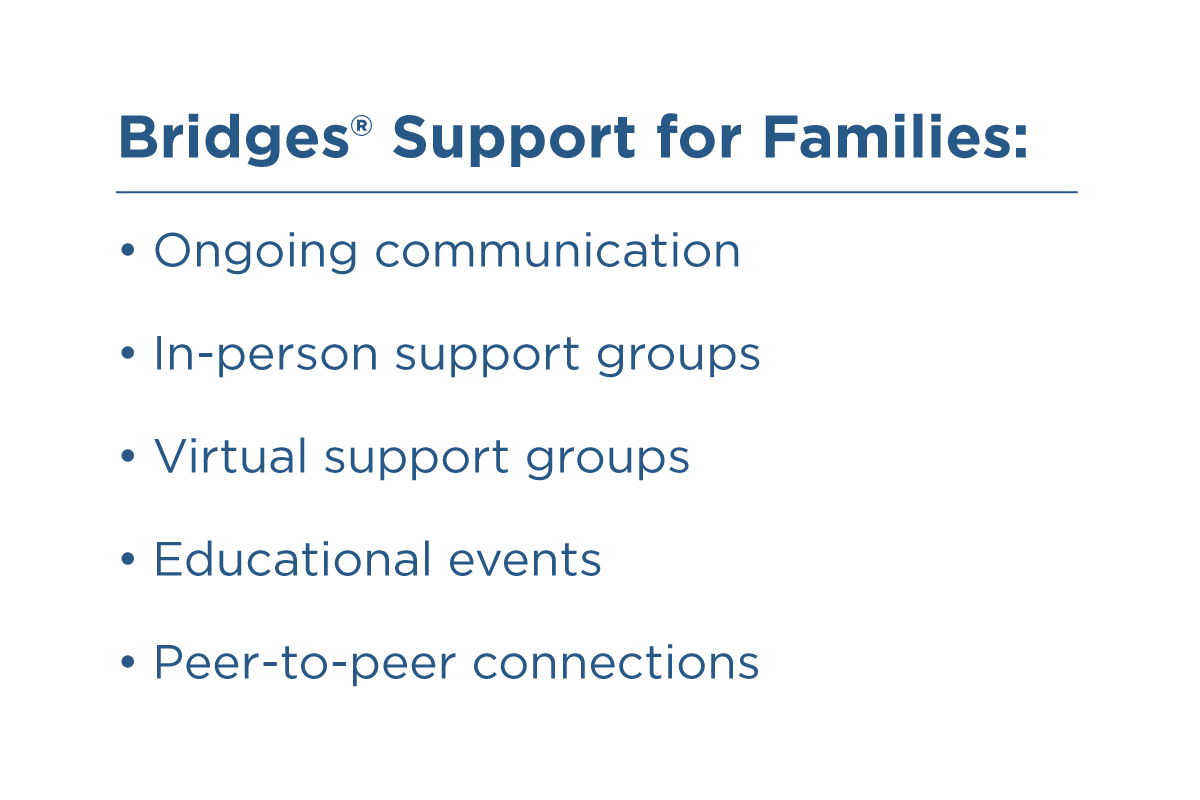
Of course, the priority at Bridges® is to determine what is best for the individual experiencing memory loss.
However, our approach tries to consider that dementia takes its toll on family members and caregivers too; it’s our responsibility and privilege to extend our care to them.
Here’s how Bridges® tries to do just that:
- Ongoing communication – We keep in touch with families with regular updates before, during, and after move-in, and then on an ongoing basis.
- In-person and virtual support groups and events – Plenty of chances to connect with others on the same journey.
- Education sessions – Monthly programming, taught by memory care experts, helps families better understand dementia and caregiving.
- Peer-to-peer connections – Hesitant families can speak directly with others who have been through the transition.
“This is never an easy decision, and it’s not one anybody should have to make alone,” explained Kevin. “We walk families through every step, and we’re there to explain every element of the memory care we provide as they determine the best course of action for their loved one. If they do decide to move into a Bridges® community, we see our families as recipients of our care as much as the residents.”
If you’re curious about what our families have to say about memory care at Bridges®, browse through some of our testimonials.
Reach Out to Bridges®

If you’re still trying to work out the decision of whether memory care is right for your loved one, know that you don’t have to navigate it alone.
Our team at Bridges® by EPOCH is here to answer your questions, provide honest guidance, and offer the support you need, wherever you are on the journey. We invite you to reach out to a community near you and speak with a caring team member or to schedule a personalized tour.
Sometimes, seeing the difference for yourself can make all the difference. Reach out to start your memory care journey today.

